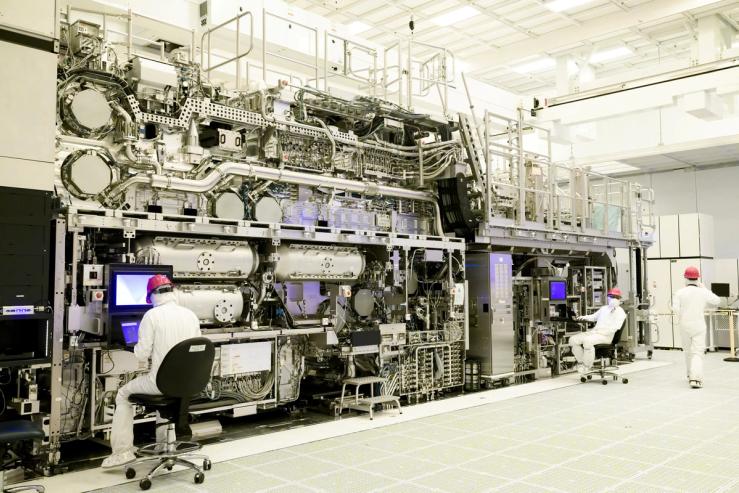
Semafor Signals
US likely to pressure EU for more curbs on China exports, ASML says

The News
The CEO of Dutch ASML, one of the world’s leading producers of semiconductor equipment, said he expects the US to increase pressure on the EU to restrict exports to China as the global AI race heats up.
“If you look at the geopolitical landscape, I think it’s clear that the US will continue to apply pressure on their allies for more restrictions,” Cristophe Fouquet told the Bloomberg Tech Summit Tuesday. “At the end of the day we’re a European technology champion company — the question is, what is right for the Netherlands? What is right for Europe?”
The US has been vying with allies including the European Union, Japan, and Taiwan to prevent their advanced AI technology from getting into China, over fears it could help bolster the country’s military capability.
In the EU, ASML has been the firm most under pressure. The company is the global leading producer of lithography machines, which are used to make advanced chips for products including Apple’s iPhone and Nvidia’s AI accelerators. At Washington’s insistence, the Netherlands banned ASML from selling its most advanced machines to China last year. The US then went further and prevented ASML from selling older gear to China, too.
European Commission President Ursula von der Leyen has warned that the bloc wants to steer clear of a protectionist approach, dismissing the prospect of joining the US on “one side of the barricades,” the Financial Times wrote.
SIGNALS
US will tighten the screws, no matter who wins in November
Some of Biden’s “America First” tech policies have stymied tentatively warmer ties between the US and China, Politico noted. The trade war will likely continue to heat up under the next administration: Both presidential candidates have campaigned on imposing more curbs on Chinese technology. Republican contender Donald Trump has promised the most hawkish approach, vowing to impose 60% duties on all imports from China, while Democrat Harris’ policies would likely be “more targeted and controlled,” Reuters noted. “We’re seeing the opening of a new front on the U.S. China tech cold war that is focused on data, software and connected devices,” a former national security official in the Biden administration told the outlet.
Moving away from China could offer new opportunities for EU
European Commission President Ursula von der Leyen stressed that Brussels would approach China differently to the US. “The Americans have just applied blanket tariffs,” she told the Financial Times in May. “We want competition, we want to trade together, but we want it to be fair and by the rules.” She argued the EU’s approach would not veer into protectionism, even as the bloc has imposed significant levies on imports of a number of Chinese products, notably electric vehicles. But tech restrictions could offer new opportunities for the EU, an analyst argued for the Centre for European Reform — sales in China may decline, but US-imposed limits have resulted in new subsidies to help build chip manufacturing plants elsewhere. Those plants will require European technology like that made by ASML, and could compensate for the losses in China.
If the EU wants to resist US pressure, it needs better intelligence
In order to withstand pressure from Washington, the EU needs better intelligence on China’s technological advances, the Mercator Institute for China Studies argued. Currently, European capitals have to rely on US-provided information, putting them at a disadvantage. EU member states also have widely different foreign policy stances, complicating the situation in the bloc, experts noted in Foreign Policy. When it comes to Chinese technology, pooling of resources and information will be key to a harmonized approach, the Mercator Institute argued: “It doesn’t help if France restricts quantum technology exports while China can build chips for dual-use quantum computers using German equipment.”

